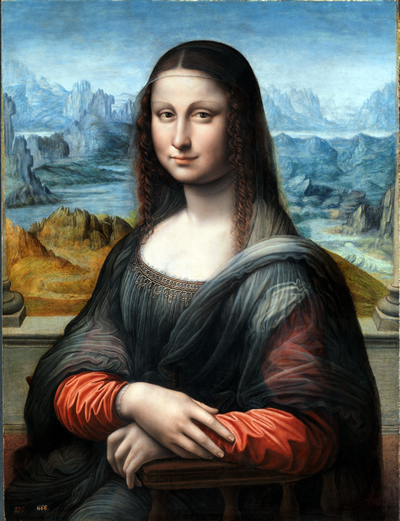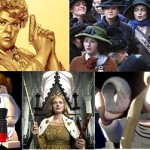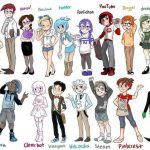We cannot live in a world that is not our own, in a world that is interpreted for us by others. An interpreted world is not a home. – Hildegard of Bingen
[Women Part 1 of 9: 1) Introduction, 2) Bodies, 3) Health, 4) Work, 5) Superwomen, 6) Religion, 7) In Tech, 8) Online 9) Conclusions]
At Easter, I was in the Prado Museum in Madrid when I wandered past this version of the Mona Lisa. Until that moment I hadn’t known it existed so it truly felt that I had discovered it, and I was able to look at it, through my own eyes and think my own thoughts without any expectation or expert opinion. It was overwhelming. It is a beautiful version and I am astounded anew every time I look at the postcard I have tacked up above my desk.
It reminds me of Philippa Gregory’s novels about the Tudors. They take the viewpoint of the women who played major roles during Tudor times but who were, because of the way society was organised, denied a voice, particularly the forgotten women like The Other Boleyn Girl, Mary; and Jane Grey’s sisters, Mary and Katherine in The Last Tudor. To coincide with the release of The Last Tudor last week, Philippa Gregory gave an interview in the New York Times saying that she was reading around the topic of medieval women with particular attention to how and why women get squeezed out of the marketplace, out of the law, and out of public service, and out of sight. I can’t wait to see what she has to say.
(Gregory went on to publish Normal Women in October 2023, which begins with the Norman Conquest in 1066 and the arrival of patriarchy to Britain, and celebrated violence against women in the Bayeux Tapestry.)
Just looking at the Mona Lisa, I already have an idea, for the original in the Louvre was labelled as Leonardo da Vinci’s handy woman. For the longest time, no one knew who the sitter was and no one really cared. It was all about da Vinci. The woman – it was decided around 2007 was probably Lisa del Giocondo – has been, for several centuries, an object on which people (let’s face it, mainly men) could project their own fantasies, which was why it was so refreshing to see a different version even though it remains symbolic of the position women have had in society for the longest time. They are silent, the muse of men, there to cater to the needs of men, treated like property, without autonomy, without legal rights. Women were powerless and helpless, and though things are much better nowadays, there is still a hangover from those days.
Life coach Martha Beck says: The most helpless feeling anyone can have in society is that of a little girl, when little boys cry they get called little girls. Little girls are at the bottom of the pile!
Things are changing slowly, with a lot of resistance. We only have to look at the fuss made over the next Dr Who and how a woman couldn’t play a time travelling alien with two hearts. Seriously? And the hatred expressed when Ghostbusters was remade in 2016: Ain’t no bitches gonna hunt no ghosts. I won’t even begin here my rants about the way women are portrayed in the media and in everyday conversation.
As a mum to girls, I feel that it is important for my girls to see a female Prime Minister, female leads in movies, female scientists, female sports women, female astronauts, female anything that my girls may want to be one day, because seeing a woman doing a job helps immensely. Even Buddhist nun Pema Chödrön says that she didn’t think she could teach Buddhism until she saw another woman teach it:
Before, I had felt there was no way could I ever do that, but now I felt like I could.
However, overall in technology and in academia in technology, where supposedly things change more quickly, there are still very few women. I have always felt about technology the way I feel about the Prado Mona Lisa, that there is no expectation and there is no expert opinion telling me, a woman, what I should and shouldn’t be doing or thinking as I spend my days absorbed in IT. However, not everyone shares my opinion. Recently, I was out socially and met several 20-something-years-old women who thought me doing IT was very cool but really hadn’t even imagined it could be a career possibility for them. And, the last two courses I taught this year (1st year undergraduate: Web Authoring and Databases) had only one woman in each course. It is sad to think that this relatively new and constantly changing field doesn’t have anything remotely approaching an equal men to women ratio.
On this blog I have written indirectly about women in storytelling and films but not in technology and just once in society which was really more about what I felt when I suffered through yet another bout of #mansplaining. I have put off writing up the research I have done, as one female academic friend summed it up perfectly by saying: It’s too depressing to think about.
So today, I am starting a blog series to look at women in society and in particular, technology to see if I can understand more about where we have been, where we are, and where we are going as women, so I can better explain to my girls how to navigate their way through this world to become anything they want to be. Wish me luck!
[2) Bodies]






